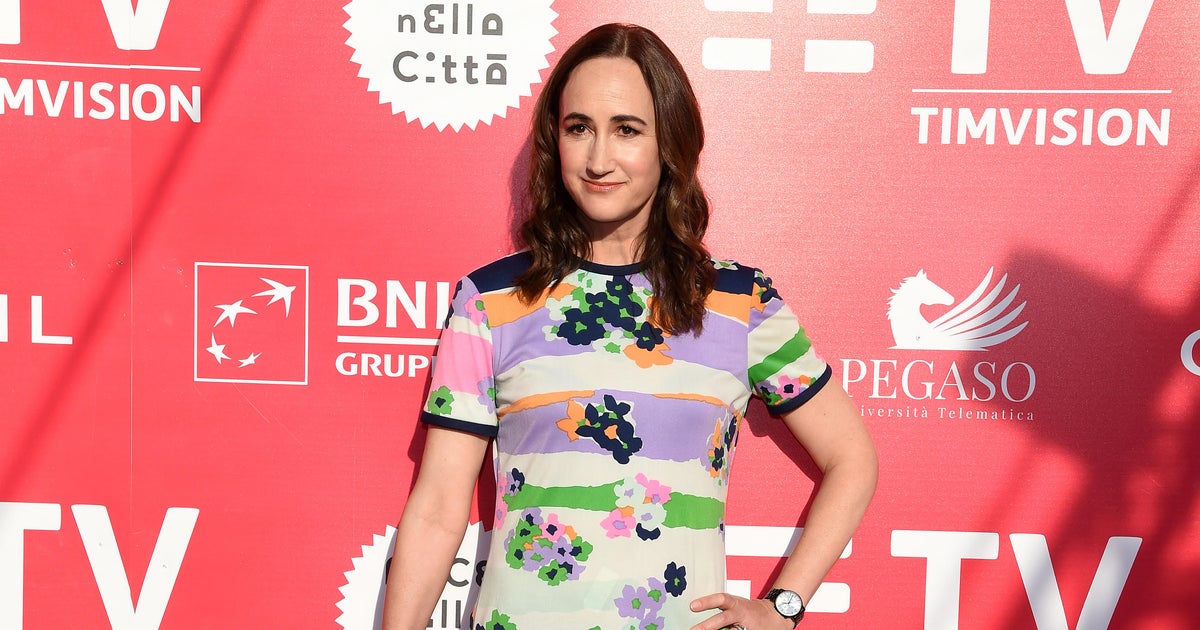Robin Williams' son opens up about father's mental health, saying the star was "frustrated" and "very uncomfortable" before his death
Robin Williams' son Zak has shared details about his late father, opening up about the actors' mental health struggles. Zak sat down for an interview with "The Genius Life" podcast on Wednesday, his dad's birthday.
Both Zak and the host of the podcast, Max Lugavere, lost a parent to Lewy body disease, a rare disease with symptoms that resemble Alzheimer's disease and Parkinson's disease.
Williams died by suicide in 2014 at 63 years old. He had been diagnosed with Parkinson's disease, but an autopsy showed he had Lewy body disease.
Zak said he saw "frustration" in his father when he was diagnosed with Parkinson's disease.
"What he was going through didn't match one to one [with] many Parkinson's patients'...experience," said Zak, 38. "He felt frustrated."
"There was a focus issue, that frustrated him. There were issues associated with how he felt. And also from a neurological perspective, he didn't he feel great," said Zak. "There was just more anxiety and depression and just things he was experiencing and talking to me about that made me realize he was very uncomfortable."
"At least from my lens, what I found was someone who was having challenges performing his craft. And that was really irritating for him," said Zak. "When you're performer, it goes beyond pride in what you're performing, it's your livelihood."
Williams' wife, Susan Schneider Williams, wrote a paper published by the American Academy of Neurology, explaining her husband's Lewy body diagnosis.
"As you may know, my husband Robin Williams had the little-known but deadly Lewy body disease (LBD). He died from suicide in 2014 at the end of an intense, confusing, and relatively swift persecution at the hand of this disease's symptoms and pathology," she writes.
She said Williams had many symptoms that would come and go, including a slight tremor in his left hand. She explained that a person' diagnosis with Parkinson's versus Lewy body depended on what symptoms they presented first. Because he first showed physical symptoms, Williams was initially diagnosed with Parkinson's disease.
"Prior history can also complicate a diagnosis," Susan says, adding that Williams had a history of depression that had not been active for six years, but came back months before he died.
People with Parkinson's disease often show many changes in the brain, according to the Mayo Clinic. One possible change is the presence of Lewy bodies, or clumps of specific substances within brain cells that are microscopic markers of Parkinson's disease.
Researchers believe Lewy bodies may hold a clue to the cause of Parkinson's disease. However, Lewy bodies can also cause Lewy body dementia. An autopsy three months after Williams' death showed he had this, rather than Parkinson's disease.
"Clinically he had PD, but pathologically he had diffuse LBD. The predominant symptoms Robin had were not physical—the pathology more than backed that up. However you look at it—the presence of Lewy bodies took his life," she writes.
Zak said being diagnosed with Parkinson's was "a period for him of intense searching and frustration."
"I wanted to be there for him on a daily basis. I really wanted to because it can be really isolating, even if you're with family and loved ones," Zak said.
He also opened up about how his father's suicide affected his own mental health. "I was self-medicating through the trauma using alcohol," he said. Zak said he saw a psychiatrist, and was diagnosed with post-traumatic stress disorder after his father's death.
He said he enrolled in a 12-step program and attended group therapy. "I was just sick and tired of trying to treat myself using harmful means," he said.
He also spoke about the stigma around mental health – especially for men. "I think many [men] feel isolated; many don't have the outlets needed," he said, adding that many lack access to affordable mental health resources.
Zak began working with mental health organizations, including Bring Change 2 Mind, which uses multimedia campaigns and develops youth programs to encourage conversations around mental health.
"I actually found myself committing time to mental health advocacy as a means of healing that trauma," he said. "For me, it was very healing."
On Wednesday, Zak posted a birthday message for his father on Instagram. "Dad, on what would be your 70th birthday, I would want you to know that your incredible spirit lives within us," he wrote. "Our family will be celebrating you and your memory today. We miss you and love you always!"




